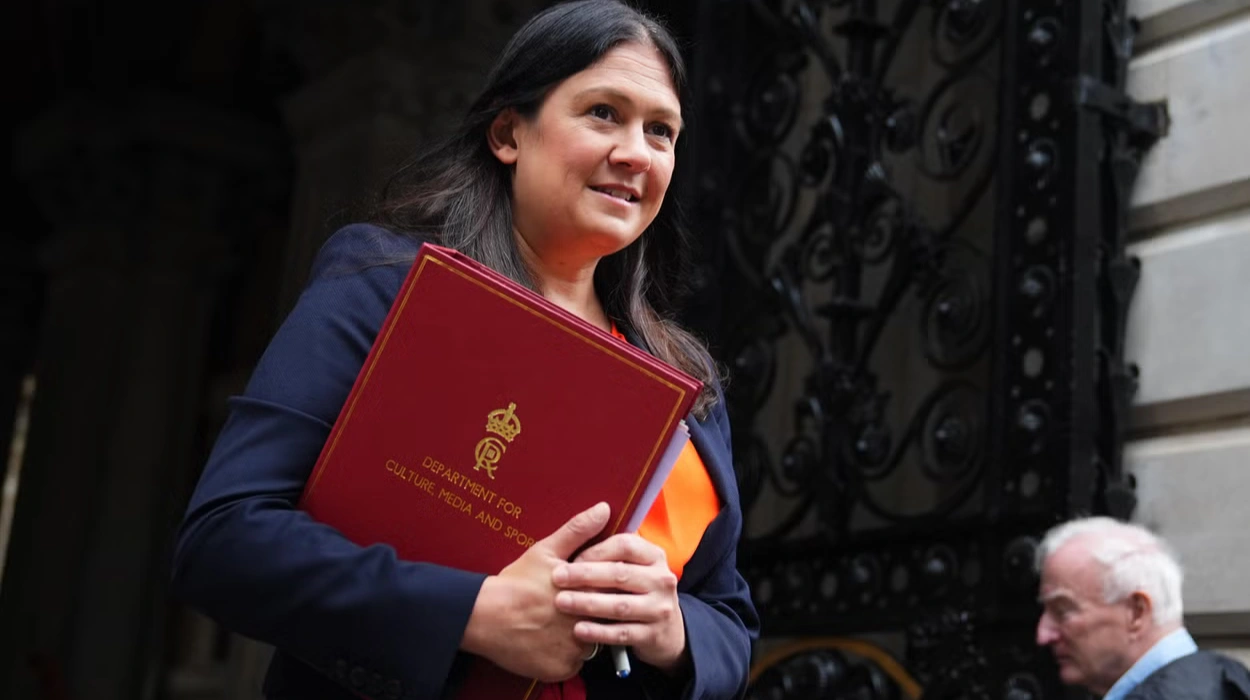UK (Parliament Politics Magazine) – Culture Secretary Lisa Nandy vows to tackle AI copyright issues, promising a balanced approach to protect creatives while supporting innovation.
As reported by The Independent, Lisa Nandy pledged that AI and copyright issues will be addressed, admitting to past legislative shortcomings.
Lisa Nandy’s views on the government’s handling of AI
Lisa Nandy criticised ministers for failing to manage the AI discussion, which had been framed as a binary choice between AI development and protecting creative industries.
Before the Commons Culture Committee, Ms Nandy faced questions on whether creatives would be paid when AI uses their work.
She stated,
“There was some concern among some parliamentarians, particularly in the House of Lords, and I have met with all of those people who voiced concerns, that the Government was somehow trying to kick this into the long grass.”
Ms Nandy said,
“I make a commitment to this committee on behalf of Parliament that we absolutely will not do that, and that we will not, in any sense, allow this to be unnecessarily delayed.”
Speaking on discussions with new Science Secretary Liz Kendall, she stated,
“I make this commitment today, that we are not going to kick this into the long grass.”
Ms Nandy said,
“We are going to grip this issue and find a solution, and that almost exactly echoes the words the Secretary of State used to me yesterday in Cabinet.”
The Culture Secretary faced questions over the recent wide-ranging ministerial reshuffle. Critics pressed on whether it signalled the Government acknowledging that they “have spectacularly got this wrong.”
She responded,
“I think that is a question for the Prime Minister. That’s not a question for me, and some of you will know, having been through reshuffles in your own time, that people are not always taken into the confidence of the Prime Minister about what decisions are made.”
Ms Nandy earlier called the matter “really difficult to solve,” adding, “people feel very strongly about it, for all the right reasons.”
She stated,
“I don’t think as a Government we did enough collectively – and I take full responsibility for this to be clear – and I think we allowed the debate to become very binary: you are either for creative industries or you’re for AI.”
Ms Nandy added,
“We had deliberately tried to separate out the legislation that we were passing in this area from the particular issue around AI and copyright. I don’t think that worked.”
Referring to the polarised debate in Parliament, the culture secretary stated,
“I say to you very personally, I haven’t said this before publicly, but one of my great frustrations with that is because it was a DSIT (Department for Science, Innovation and Technology)-led Bill, I wasn’t able to be as present in the debate in Parliament as my counterpart and friend Peter Kyle.”
She added,
“It became a debate that was very much around AI, where the creative industries needed to see that their Secretary of State was also very visible and the parliamentary process and rules just didn’t allow for that.”
How will the Data (Use and Access) Act affect creatives in the AI era?
The Data (Use and Access) Act, passed earlier this year, introduced changes to data protection laws to encourage innovation and support economic growth.
Concerns grew that creative work could be at risk as the AI sector expanded, prompting criticism of the Bill.
The Bill was amended by peers to block the use of copyrighted material in AI without proper authorisation or payment.
The Government is holding talks with both sectors to ensure AI progress aligns with the interests of creative industries.
The Department for Science, Innovation and Technology sponsored the legislation that became the Data (Use and Access) Act.
Key facts about the Data (Use and Access) Act
The Data (Use and Access) Act, passed in June 2025, updates UK data laws to promote innovation and responsible data-sharing. It introduces “Recognised Legitimate Interests” for processing, relaxes automated decision rules, and exempts low-risk cookies from consent.
Most provisions will roll out over 2–12 months, with some retroactive requirements applied from January 2024. The Act also adds a new test for international data transfers to ensure protections meet UK standards.
Keir Starmer’s recent cabinet reshuffle
In Prime Minister Sir Keir Starmer’s recent cabinet reshuffle, David Lammy moved from Foreign Secretary to Deputy Prime Minister, and Darren Jones was appointed Chancellor of the Duchy of Lancaster while retaining his role as Chief Secretary to the Prime Minister.
Steve Reed shifted from Environment Secretary to Housing Secretary, Peter Kyle was promoted from Science Secretary to Business and Trade Secretary, and Douglas Alexander replaced Ian Murray as Scotland Secretary.


